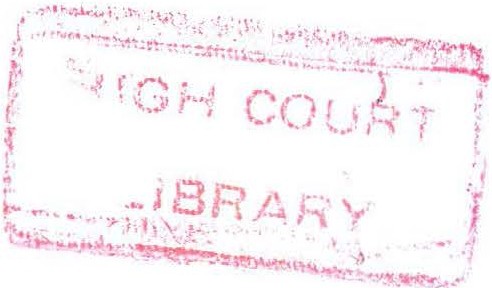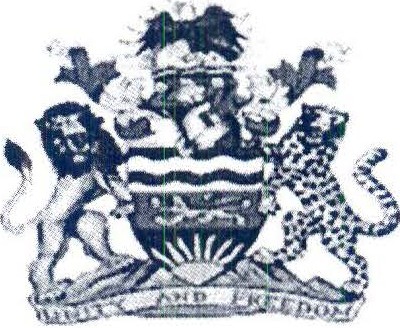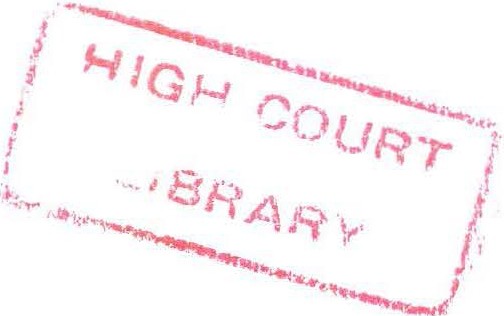


MALAWI JUDICIARY
IN THE HIGH COURT OF MALAWI
PRINCIPAL REGISTRY
CIVIL CAUSE NO. 366 OF 2016
IN THE MATTER OF SECTION 11 OF THE CHIEFS ACT
AND
IN THE MATTER OF GROUP VILLAGE HEADMAN MWIMBULA
BETWEEN:
MATILDA MLENGA, GEORGE MILLI AND KENNEDY MASAUKO (On their behalf and on behalf of Reben Clan, Tambala Clan and Misipuni Clan........................................................................................PLAINTIFF
AND
BILLY HENERIQ .........................................................................1ST DEFENDANT
EMMA SAMSOM ................................................................ .2ND DEFENDANT
SENIOR CHIEF SOMBA........................................................ 3RD DEFENDANT
CORAM: THE HON. JUSTICE H.S.B. POTANI
Miss H. Chatepa, Counsel for the Plaintiff
Mr. L. Master, Counsel for the Defendant
Mr. Kanchiputu and Mathanda, Court Clerks
RULING
This is the courts determination of an inter partes hearing of the plaintiff's application for an injunction against the defendants herein.
By way of an originating summons the plaintiff commenced these proceedings against the defendants seeking various declarations and orders and orders with regard to the throne of Group Village Headman Mwimbula. Simultaneous to the commencement of the proceedings, the plaintiff by way of an ex parte application sought an interlocutory injunction order restraining the 1st and 2nd defendants from exercising chieftaincy powers over powers Mwimbula village and the 3dr defendant from implementing his decision elevating the 1st plaintiff to the position of Group Village Headman [GVH] Mwimbula until the determination of the matter or further order of the court. It was the court's position that the justice of the case would best be served by hearing the application inter parties and necessary directions in that regard were given.
There are affidavits filed in support of and in opposition to the injunction being sought. Though not very lengthy, the affidavits carry very contentious versions as to which side between the plaintiffs ' and the defendants ' side is the rightful heir to the throne supposed to come from.
The law on the grant and/or refusal of an interlocutory injunction is well settled and the often cited case on the subject is perhaps American Cyanamid Co v Ethicon Ltd [1975] AC 396 in which Lord Diplock authoritatively explained the principles to be applied in such cases. These principles, in a summary form, are that the applicant must establish that he has a good and arguable claim to the right he seeks to protect and in deciding on that aspect, the court must not attempt to decide this claim on the affidavits as it is enough if the applicant shows that there is a serious question to be tried. If the applicant satisfied these tests, the grant or refusal of an injunction is a matter for the exercise of the court's discretion on the balance of convenience.
The court cannot help but to mention, at this juncture , that the manner in which the parties have presented and argued their respective cases tends to drag the court into the temptation of deciding the merits plaintiff's claim on the affidavits which should not be the case on an interlocutory stage. That said, the court having considered what has been presented to it by the parties takes the position that there is a serious question to be tried in this matter and the question being who between the
two camps' lineages is the rightful person to hold the throne the bone of contention herein supposed to come from. As the facts tend to show each side is claiming to belong to the throne's family lineage. In addition, the 1st and 2nct defendants contend that their claim to the throne has the blessings of Traditional Authority [TA] Somba under whose jurisdiction the throne falls in that after hearing both sides he ruled that the 1st defendant was the rightful heir. Of course the court is mindful that the decision of TA Somba is an issue in these proceedings as he himself is the 3rd defendant. The court stage has deliberately desisted from recounting the lengthy narratives in the parties' affidavits on the history of the throne lineage to avoid running the risk of deciding the merits of the case on affidavit evidence at an interlocutory stage.
It is trite law that the purpose of an interlocutory injunction is to preserve the status quo until the rights of the parties have been decided on in the substantive matter. The facts of the case show that before ascending to the disputed throne, the 1st defendant was assisting the previous holder of the throne in discharging his duties. It is therefore the inclination of the court that the status quo to be preserved is to allow the 1st defendant to hold the throne until the determination of the matter. It is therefore the court's position that the balance of convenience in this case tilts in favour of not granting the injunction the plaintiff seeks. In the end result the plaintiff s application is accordingly ordered.
On costs, the plaintiff is condemned in costs of the application.
Made this day of November 11, 2016, at Blantyre in the Republic of Malawi.
H.S.B POTANI
JUDGE
1